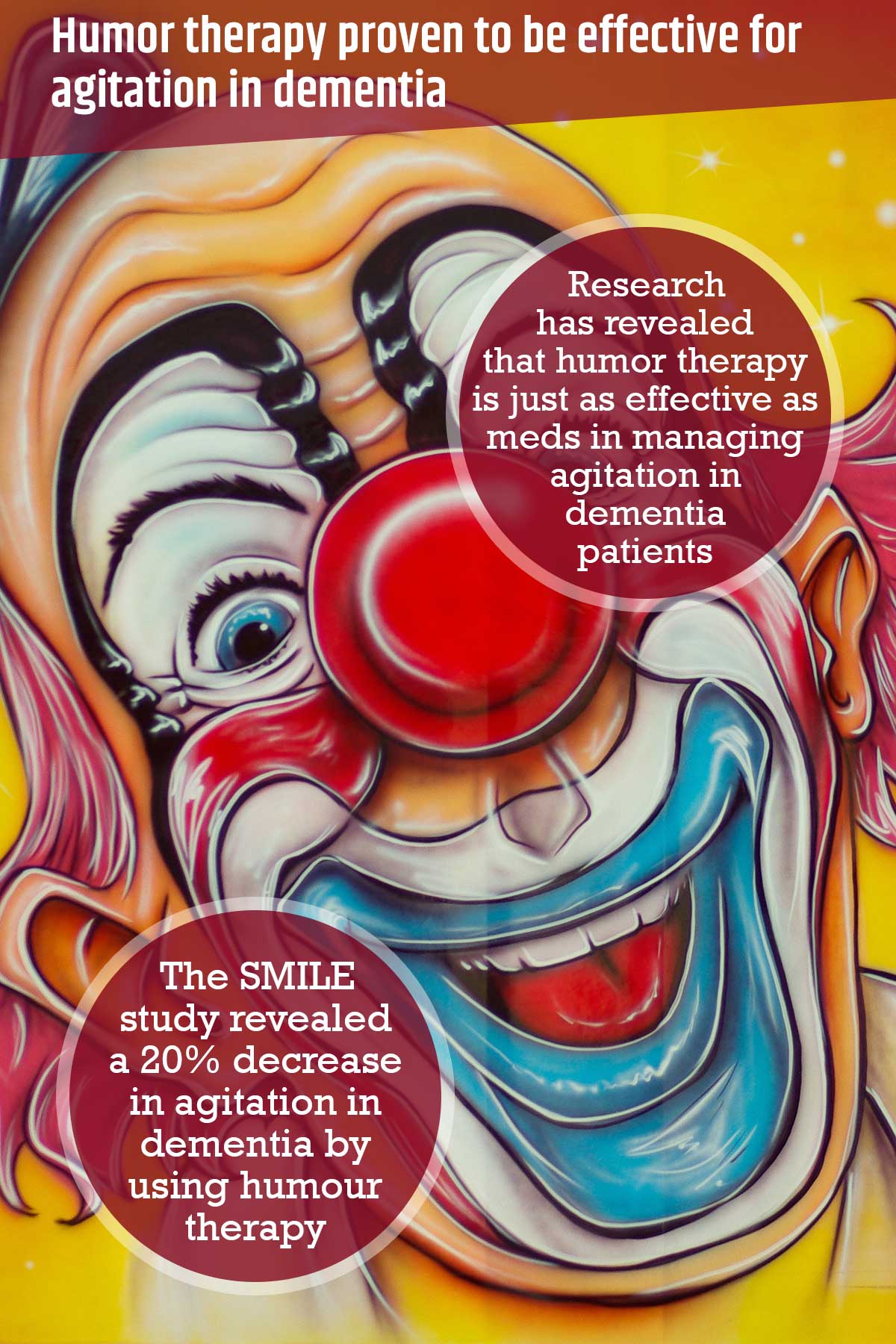A study shows that humor therapy is as effective as popular antipsychotic meds in dealing with agitation in dementia and eliminates severe side effects of drugs.1✅ JOURNAL REFERENCE
DOI: 10.1136/bmjopen-2012-002072
The study on the effects of humour therapy on agitation, mood, social engagement and behavioural disturbances in individuals with dementia revealed both short and long term reduction in agitation in dementia.
The SMILE study involved the recruiting and teaching of an employee to act as a “LaughterBoss” who worked together with a humour specialist with improvisation and comedy skills, a bit like “Clown Doctors” made use of in hospitals to assist recovery and elevate mood in kids.
Dementia rates are estimated to double over the following twenty years, mostly as a result of an aging population.
Around 6.5 % of individuals over 65 and 22 % of individuals over 85 have dementia, a term used for describing as many as 60 different disorders resulting in similar neurodegenerative changes within the human brain.
Agitation in dementia bothers around 70 – 80 % of folks affected by dementia, an issue for both individuals with dementia as well as their carers.
Agitated behaviors consist of verbal and physical aggression, screaming, wandering, and repetitive questions and behaviors.
This can be problematic for staff and sometimes suggests unmet requirements and distress with the inhabitants of aged care establishments.
The SMILE study revealed a 20 % decrease in agitation in dementia by using humour therapy, progress similar to the more common usage of anti-psychotic meds.
This demonstrates humour therapy should be thought about prior to medications for agitation in dementia, especially considering its negative effects.
An important 2009 study revealed significant antipsychotic side effects, such as thousands of strokes and deaths, connected to the using of these meds in dementia and advised a decrease in medication rates and specialist carer instruction in non-drug therapies.
Agitation lessened in patients with dementia in the SMILE study not just throughout the 12 week humour therapy plan, but continued to be lower at 26 weeks.
Positive and happy behaviors increased in the 12 weeks of the program, but decreased the moment humour therapy stopped.



